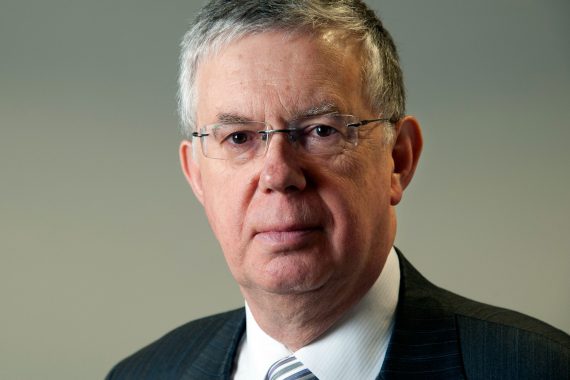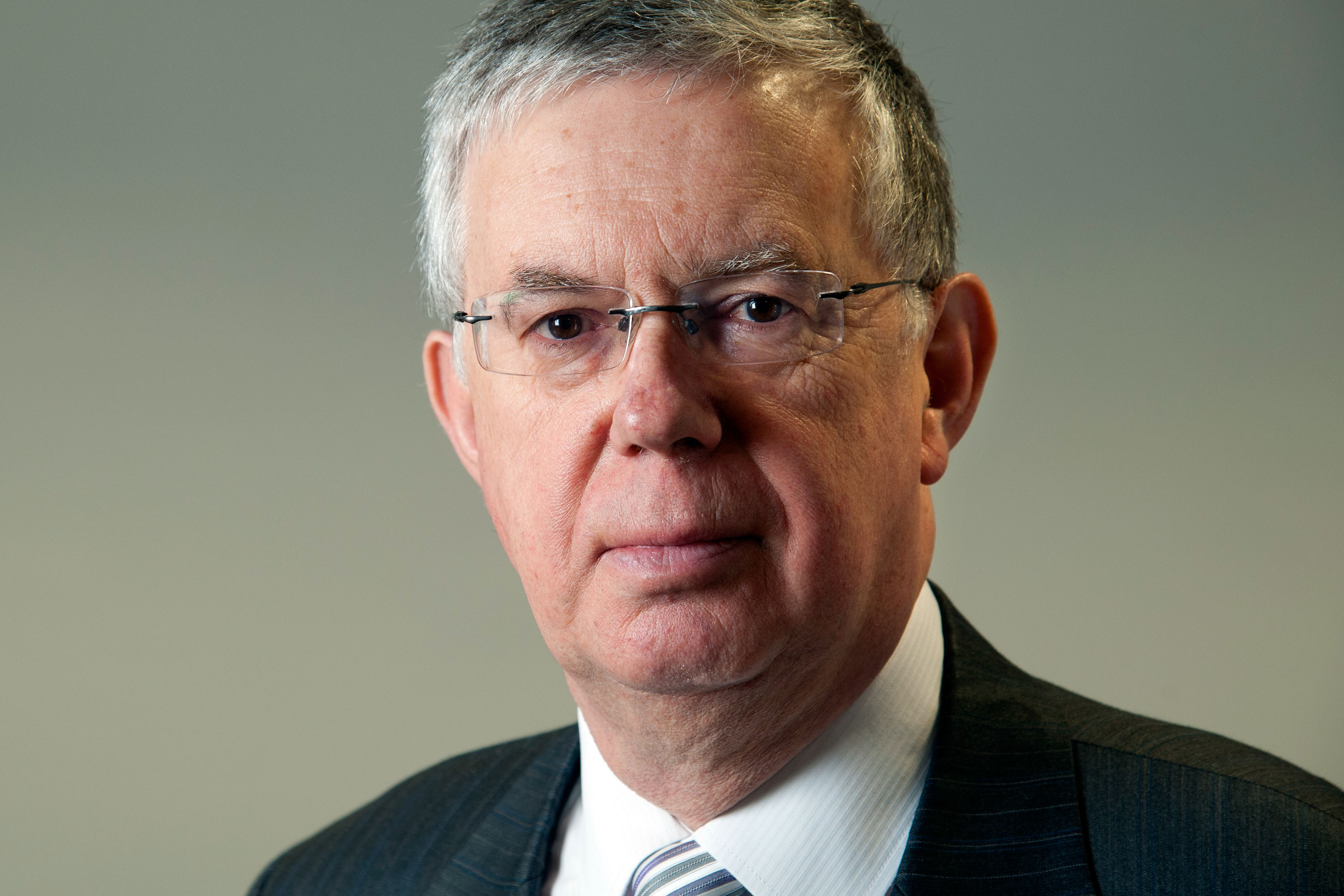‘I want to go back to square one with GPs’


Professor David Haslam is a class act. A former president of the BMA and the RCGP, he knows general practice like the back of his hand.
So it is all the more surprising that his chairmanship of NICE over the past two years has seen an unprecedented breakdown in the institute’s relationship with GPs.
Recent guideline recommendations have been variously described as ‘bonkers’, ‘pointless’ and ‘unsustainable’ by leading GPs, while some of NICE’s communications with the media have sparked white-hot outrage. A recent press conference saw a senior NICE official recommend GPs be reported to the GMC for overprescribing antibiotics, prompting emergency talks with the GPC.
The loss of faith in NICE as an organisation can be traced back to the recommendation last year that GPs adopt a 10% 10-year risk threshold for statin treatment for the primary prevention of CVD. NICE ignored protests from GP leaders and then tried to force the threshold into the QOF, leaving many questioning the purpose of the institute.
But there are signs of a change of heart, with NICE performing a U-turn on its statins QOF indicator, rethinking its asthma and diabetes guidelines and looking into a new GP advisory group.
So does this mark a sea-change in GPs’ relationship with NICE? Pulse sat down with Professor Haslam to find out.
There has been strong criticism recently, both of certain recommendations within NICE guidelines for GPs and the way they have been communicated. Is this justified?
I don’t see it is as criticism. I see it as part of the process – it’s exactly what NICE tries to do. When we’re initially looking at a topic, we will bring together experts, patients, service users, carers and so on, both primary and secondary care, whenever it’s relevant and necessary. We draw up an initial area of guidance and put it out for consultation. And when we say consultation, we mean it. It’s there to get the feedback, for people to say, ‘Hang on a minute, think that through, that doesn’t work, this works, we like this, we don’t like that’. I don’t see that as a negative, I see it as an enormous strength of process.
We want to produce the best possible product and the engagement of GPs in this process is what I’m after.
But there are concerns NICE is too remote, and does not listen to the profession. Why did NICE choose to ignore GPs’ reservations over the 10% primary prevention threshold?
We have talked about this many, many times before. The message was for GPs to discuss lifestyle issues, smoking, exercise and obesity with patients. Then, if you and your patient feel it’s appropriate for statins to be used, the threshold at which they are cost effective has come down, because the drug is cheaper. It was not saying ‘put another four million people on statins’. That is not my aspiration. My aspiration is to provide the best possible advice for GPs, and for those whose patients are interested in statins. If the doctors were interested and had given the counselling and so on, I would stand by the advice we’ve given, absolutely.
NICE has put out mixed messages on this. Why attempt to put the 10% threshold into the QOF?
As I’ve said before, I personally don’t like the linkage of payment with prescription. My personal preference is for any support to be around discussing the issues with the patient to get the right result for the individual. I absolutely have to repeat what we’ve talked about before, which is that we do not produce the QOF. NICE’s responsibility is to look at the potential indicators that could be used in the QOF to see what the metrics might be and then to offer those to the GPC and NHS Employers to determine what goes into the QOF.
But NICE has since conceded that with hindsight it would have been better not to propose those indicators for statins, but to pilot them first.
I know there was an awful lot of misunderstanding. A lot of people thought the threshold had shifted for the QOF across the board, and actually it was just for people with newly diagnosed hypertension and diabetes. So the proportion of patients who would need counselling was not higher. It’s the same group of patients but the threshold was different. But we did listen. I made myself available to listen. We’ve absolutely got the message, we understand the issues that are being raised and I hope we’re moving to a place where GPs can feel confident we understand their concerns.
Nevertheless, the GPC and RCGP understood the proposal and sent in major objections during the consultation period, yet NICE still pushed it through.
I’m concerned that NICE is being criticised even though we got to the answer that people are happy with.
There is also the issue of NICE’s handling of the media and the message it sends to the public. Do you accept this is part of the problem?
It’s terribly difficult to know what headlines are going to come out of a story. Many times in my career, well before NICE, I’ve seen headlines that are frightening but when you actually get to the story, it’s actually very reasonable. That’s happened on a number of occasions recently. All I can say is, we’ll learn from that.
Absolutely the last thing we want to do is frighten and irritate GPs. We want to provide the best information about the best treatments that are available for patients, working with GPs as much as possible in a supportive way, and I understand the concerns.
NICE has now delayed the publication of the final asthma guidelines, to look at the feasibility of new tests for diagnosis. Does this set a precedent?
All the evidence we’ve had from the work on asthma is that there would be value in better diagnostic tests. If it turns out that GPs are indeed following up a lot of people who don’t need it, I suspect GPs would be delighted to know there is some work they don’t have to do and that stopping it wouldn’t be to the detriment of any patients. But we need to be sure, which is why we felt that more follow-up, piloting and so on would be helpful.
But in the past NICE has said its remit is not to deal with the practicalities or limitations of the system?
No, it’s got to be best practice and it’s got to be deliverable. I’m sure GPs would not want me to say, ‘I know GPs are busy, so let’s relax thresholds for the treatment of hypertension’. No one would want me to do that. While understanding the pressure general practice is under, I hope what we’re doing is proving the benefit of general practice, which will help the RCGP and GPC in discussions with the Government to recognise the need for more support. So on one level it’s very positive. But again, I feel I’m being criticised for listening and criticised for not listening. So I’ll keep listening.
Will we see a change in the way NICE works with GPs?
One of the things I’m committed to is engaging with representatives of real, frontline GPs. I want to take this back to square one: what’s the problem, what is bugging GPs about the way NICE does things, how can we get it better? I’m expecting big things from that.
Is this a new GP advisory board at NICE?
I haven’t got a name for it yet, but initially it will be an informal meeting to discuss the best way to tackle the sort of issues that Pulse has been so effective at flagging up. I am very aware from all the GPs that I meet that general practice is under a lot of pressure at the moment. NICE is seen as part of the establishment, and that causes real problems. [But] what NICE is here for is to produce the best possible advice to help people deliver high-quality care.
Who are you inviting to the table?
I can’t tell you until I have spoken to them.
CV – Professor David Haslam
Age
65
Education
Qualified in 1972 from University of Birmingham Medical School
Career
• 1976-2011 GP in Huntingdon, Cambs
• 2001-04. RCGP chair
• 2006-09 RCGP president
• 2008-13 National clinical adviser to CQC
• 2011-12 BMA president
• 2013-present NICE chair
Professor Haslam is also a Fellow of the RCGP, the Faculty of Public Health, the Academy of Medical Educators and the Royal College of Physicians. He is the author of 13 books
Career high
CBE in 2004 for services to medicine
Other interests
Music, spending time with family and racking up the miles on his pedometer
Pulse October survey
Take our July 2025 survey to potentially win £1.000 worth of tokens











